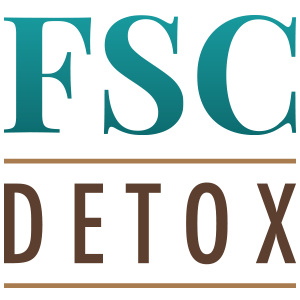The Difference Between Drug Detox and Rehabilitation in Residential Treatment
The Physical and Psychological Aspects of Addiction Treatment
Treatment of addiction is so much more than ending drug use and breaking the physical dependence. Recovery from addiction entails ridding the body of a physical dependence through detoxification and studying, understanding and treating the psychological addiction and the psychological causes that the addiction stems from. When choosing what program will work best for you, it is important to know the available options and what the difference is between detox and rehabilitation.
Recovery from both physical and psychological addiction is key in successfully moving forward and learning why there is a desire for alcohol or drug use. Knowing the roots of your addiction will help you to better understand your actions and how to protect your sobriety. When seeking out an Orange County drug and alcohol rehabilitation facility, it is important to learn about all of the options and what will work best for you.
At Fresh Start of California, detox and rehabilitation are part of the residential treatment available to those in need. Contact our team to learn about our program and what we have to offer.
What is Detox?
The most significant part of a detox is the process of purging the body of physical dependence upon the substance. Living in addiction involves the brain changing to adapt to the chemicals of the substance, in so much as the brain’s chemistry is altered to survive the “poisoning” by the substance. Detox in a residential treatment affords the addict 24-hour medical care and supervision throughout the withdrawal process and removal of toxic chemicals from the body. Medical care through the withdrawal process may include monitoring vitals and health while administering medications prescribed to help lessen the symptoms.
The detox process, symptoms of withdrawal, and length of time of detox will differ based upon what drug, or drugs, you used. Through the detox phase, the body is brought back into homeostasis and the brain’s chemicals are able to restore to their composition without the substance. Essentially, detox is the physical and chemical removal of drugs or alcohol. This process is critical is being able to work through the psychological, emotional and social dependencies which are the focus of rehabilitation.
The Process of Rehab in Residential Treatment
Residential Rehab treatments have several advantages over programs that are out-patient, for the simple fact that those in recovery are living at the facility which allows for constant help. Residential rehabilitation patients have access to multiple forms of therapy, group and individual treatment sessions, and professional counsel 24/7, which increases the rate of success. Without the distractions of the outside world, rehabilitation can dig into the roots of addiction, uncover the triggers to use and release the pain that is held in the grip of the addiction.
The process of rehabilitation differs from detox in that it addresses the issues that cause the addiction psychologically, while detox is purely physical. Rehabilitation gives addicts in recovery the tools they need to overcome the past, work through their present situation, and be able to successfully move into the future. Many rehabilitation processes conquer fears through different therapies and work with patients to create confidence and stability so that it is easier to cope with the outside world.
Moving Forward with Renewed Body and Mind
The combination of detox and rehabilitation in residential treatment is one that will always make for a brighter future. Drug and alcohol addictions are not to be underestimated and you deserve the best options for complete treatment available. Evaluate your circumstances and trust that you are worth moving beyond the detox and getting to the bottom of your addiction. As your Orange County drug and alcohol detox and rehab facility, Fresh Start of California has a program that can work for your individual needs.
Your future is worth the commitment of detox and rehabilitation. Contact Fresh Start of California today.


